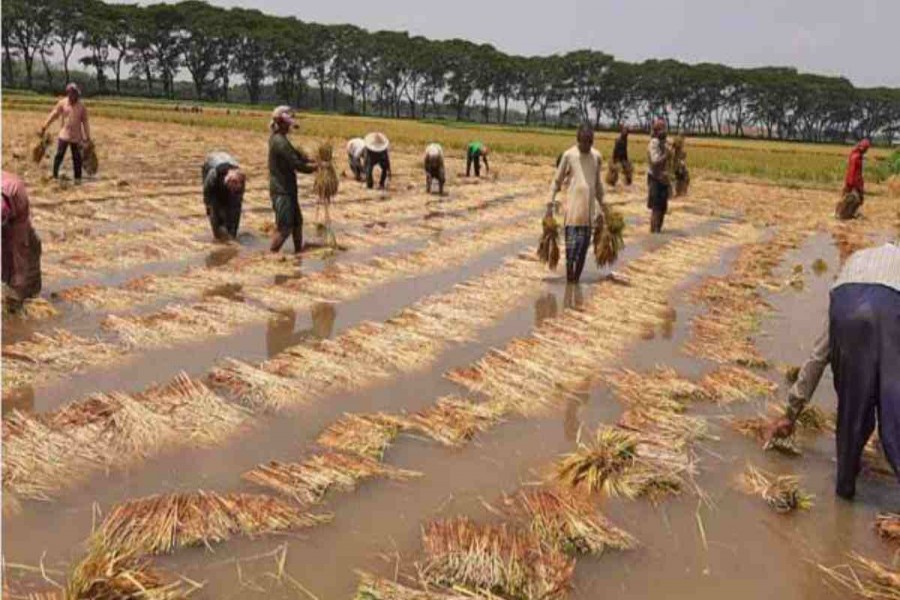For the farming community, getting raw deals is a common happening in this part of the world. Nature, at times, thrust on them calamities such as drought, cyclone and flood, destroying, fully or partially, the standing crops in their fields. There is no dearth of man-made troubles also. The prices of farm inputs are raised artificially very often while an evil nexus of middlemen tends to deprive the farmers of fair price for their produce. This time, however, the villain is a different one, an invisible one. It is deadly novel coronavirus.
The virus has not only emerged as a messenger of widespread death and suffering, it has been causing an unprecedented damage to the economic wellbeing of billions of people across the world. The peasantry in Bangladesh is also affected. The loss they had suffered in the first one and a half months, beginning from the last week of March, in monetary terms, was as high as Tk.565 billion, according to a research study conducted by the Brac (Bangladesh Rural Advancement Committee).
The loss has been estimated on the basis of decline in the prices of agricultural commodities and the crops perished in the farmers' fields for lack of marketing opportunities. In fact, the farmers continued to experience difficulty in marketing their produce until May 31 last when the government relaxed restrictions on the movement of transports, including buses and trucks. When restrictions were in place, the price of a good number of agricultural produce recorded rise in urban areas because of short supply. In contrast, many poultry and dairy farms were forced to cut their production in the face of reduced demand.
Unfortunately, hardship faced by the peasantry most of the time goes unnoticed unless the media highlights it prominently. Farmers have been in a disadvantageous position because of the fact they are unable to emerge as an organised force that is capable of attracting the attention of the policymakers. Despite being far smaller in numbers people engaged in other vocations and trade have been successfully managing benefits, financial or otherwise, for year after year just because they are organised and have political connections. Since it is not possible to get all the members of the farming community under one single umbrella, it becomes the responsibility of the policymakers to lend constantly an extra ear to the problems of the former. Given their contribution to the economy, they do deserve greater attention.
It would be inappropriate to say that the government has been indifferent to the needs of the farmers affected by the pandemic, financially. The Prime Minister has already announced a Tk.50 billion low-interest bearing loan package for the agriculture sector. However, the rate of interest should have been equivalent to, if not less than that offered to the readymade garments (RMG) sector. The government might also consider enhancing the volume of the relief package for the agricultural sector given the huge loss suffered by the farmers. The Ministry of Finance needs to constantly monitor the progress in disbursement of the loans under the special facility.
Though the government has lifted restrictions, the situation is still far from normal as the rate of virus infection has been rising unabatedly. The enforcement of a hard lockdown soon is not unlikely. In that case, marketing and transportation of farm goods might again suffer disruption. So, it remains an important job for the government to devise a strategy to keep the supply chain unaffected through the involvement of all the middlemen who, traditionally, have been playing an important role in the marketing of agricultural goods.


